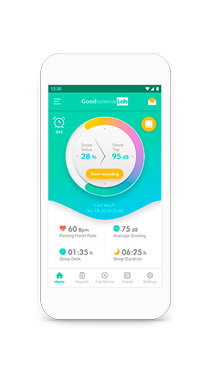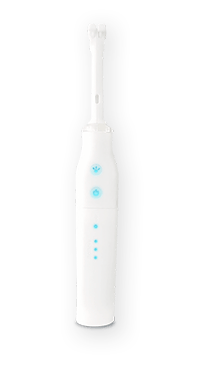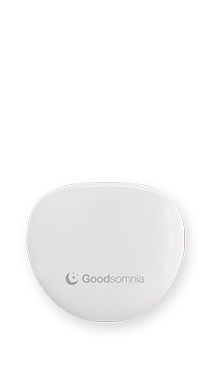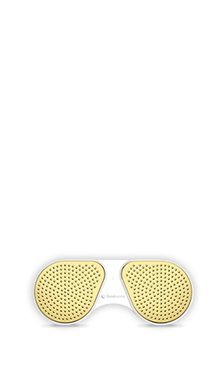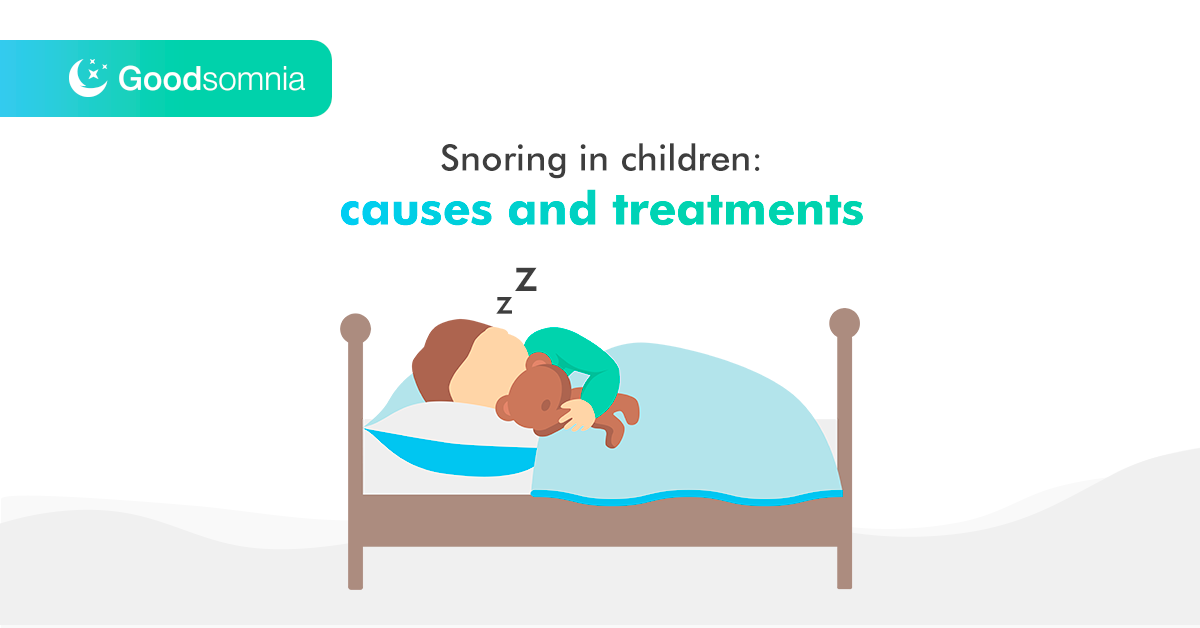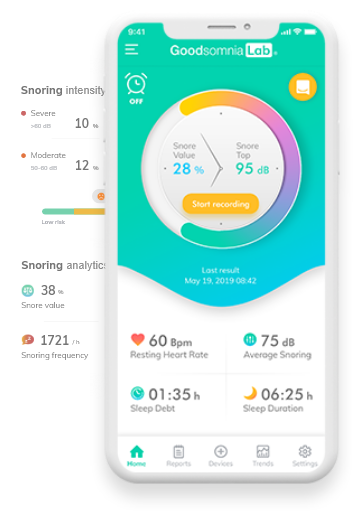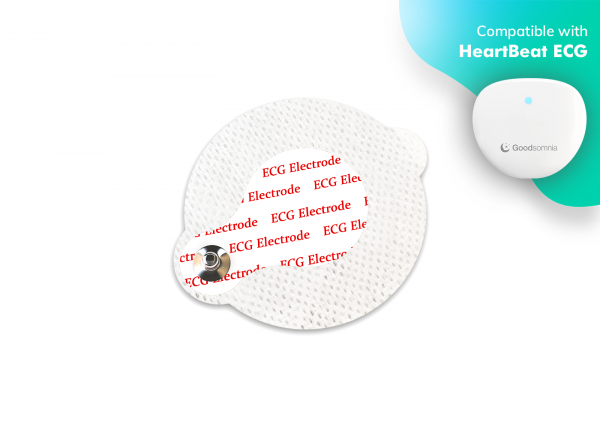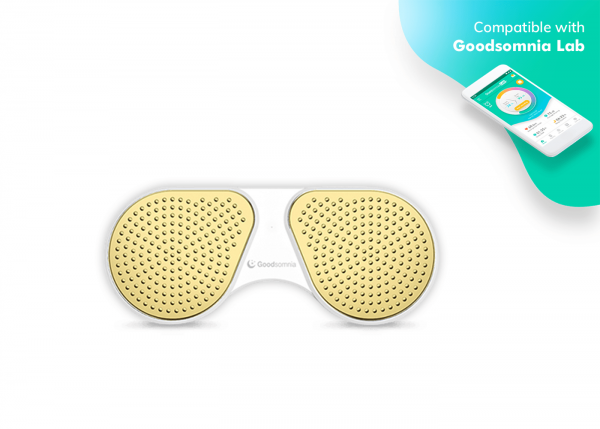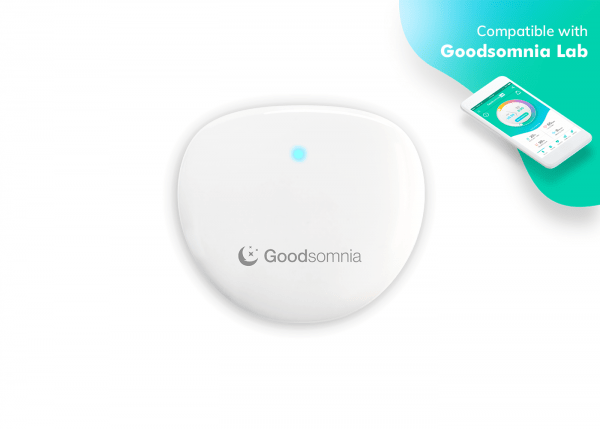The three most important things for parents are keeping baby safe, healthy and happy. Young parents are always very children-centered, they treat children with their life. It’s not that easy because sometimes a cough is just a cough. To help you recognize the real disease from a one-time thing, here’s a guide into children snoring. Let’s figure out what causes snoring in a child, how to detect it and how to help a child stop snoring.
Why children snore and what can I do to help my child stop snoring
If your child snores most nights, no worry according to the National Sleep Foundation. Around 10% of children snore every night. Maybe, yours is in that 10%. The reason we and our children snore is simple — all the muscles of our body relax, including the tongue and the muscles at the back of the throat. The sound of snoring is actually the vibration of tissues in the back of the throat. The thing you should pay attention to is the snore volume. It depends on how much and how fast air is passing through the throat. If the sound is very loud and regular it’s often abnormal.
The reasons why your little one is snoring could be:
- enlarged adenoids or tonsils
- respiratory infections (a cold, flu) or seasonal allergies
- asthma
- obstructive sleep apnea (OSA)
These cases demand professional medical treatment and advice. If the issue is less serious, parents can deal with it on their own following hands-on tips:
- add a pillow or two as it can open up breathing passages
- remove everything that can cause allergy from the room
If your child still keeps snoring, ask a doctor about alternatives ways on how to stop a snoring child at home condition.
What doctor helps with snoring
The key thing in distinguishing a real disease from a fake one is observation. If a toddler keeps snoring most nights very loudly, seems to struggle for every breath, looks sleepy and getting tired very quickly, having trouble concentrating, these are definitely the symptoms of OSAS or the trigger that a child has enlarged adenoids or tonsils. The list of symptoms could be even longer but these are the most common. If you noticed at least 3 of them, see a doctor. And this is where a crossroad appears. What kind of doctor cures snoring? There’s no magic pillow or magic doctor who treats a child in a moment. You might be sent to three specialists who deal with different snoring pathogens.
- Pediatric sleep specialist
- ENT (ear, nose, and throat specialist)
- Pulmonologist (lung specialist)
Every doctor fixes snoring through scoring and measuring different parameters. While a pediatric doctor can help with snoring after a sleep study, a pulmonologist deals with tonsils and adenoids removal. Surgery is not always the first line of treatment. What do doctors recommend for snoring elimination?
- Customized mouthpiece for sleeping
- CPAP treatment that includes the nasal or face mask
- Special diet and exercises
- Modern anti snoring devices
Remember the goal is to win back a restful sleep. So, if enlarged adenoids or tonsils isn’t a problem, it’s better to try the advice above. This is the best way to detect a real issue of the snore, choose the best treatment without abusing a child. Parents’ attention is a key thing. You should be very precise with noticing all the symptoms and telling the doctor. It’s not a parents’ responsibility to know what doctor can help with snoring, the thing you should worry about is to catch the first sign of a disease.
How stop-snoring devices work
Sleeping nasal dilators, anti-snore apnea nose clip, smart masks that decrease snoring volume and many, many other stop-snoring devices that scare us when we just hear its name. When it comes to using some of them, parents feel confused and it’s okay. Everybody cares about a child and don’t want to bring harm with all these devices. To understand how to use anti snoring devices, we should first understand how anti-snoring device works. So, let’s take a closer look at different types of anti-snoring devices and figure out how each of them helps children.
- Mouth devices: The key reason of snoring is the air goes through the mouth with difficulty. Every device that fits over the mouth keeps a mouth open and smoothes the airflow. As usual, such anti-snoring devices look like a boxing mouthpiece and it can be customized to be the most comfortable.
- Nose devices: To sleep well the air must flow through the mouth and the nose. So to improve the quality of sleep people use nose clips that keep nasal airways open. It’s never a waste of time to scan the information about the nasal anti-snoring device, how it works, pros and cons. Before using it, consult a doctor.
Note, these devices are a good solution when the snore is rare and not very loud. The alternative of snoring treatment in children without wearing anything in or out is Goodsomnia smart stop-snoring device. This one stimulates the soft palate muscles and makes them stronger. It brings extra power to the children’s palate muscles, so they don’t vibrate and you may not worry about your little one sleep. Keep in mind, when the issue is more serious you should ask a doctor on how to stop snoring, devices that he/she recommend may differ according to the cause and symptoms.

